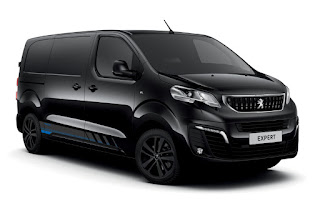2WD Freelander revealed
Land Rover has updated the Freelander 2, giving it more efficient engines and some minor styling tweaks.
However, the big news is that for the first time a two-wheel drive version is also going to be offered. Now that may get some Land Rover purists a bit worked up, and others may say it’ll damage the brand. But, as Land Rover points out, two-wheel drive SUVs account for 23 percent of the segment in Europe. If it was being less tactful, the company could have also said that a lot of Freelander drivers won’t come even close to using the off-road capabilities of their cars, so it’s unlikely they are going to miss four-wheel drive.
And it’s not as if Land Rover has never produced a two-wheel drive vehicle before. In the past it supplied some 4x2 Series models to the British and Belgian military, as this Land Rover Monthly editorial explains.
Probably the main reason for introducing the two-wheel drive model - dubbed eD4 - is to reduce the average emissions of the range. Going by the numbers, it should certainly help achieve that. Using a 147 bhp (110 kW / 150 PS) 2.2 litre diesel, six-speed manual gearbox and a stop/start system, it achieves 47.2 mpg (6.0 l/100km) on the combined cycle while producing 158 g/km of CO2.
The first of the 4WD variants is the TD4, which has the same engine as the eD4. Perhaps the biggest surprise is that its green credentials aren’t that much worse because, with the standard manual transmission, the TD4 now manages 45.6 mpg (6.2 l/100km) and 165 g/km. As expected, those figures go downhill if the optional automatic gearbox is specified, partly because it doesn’t get the stop/start system.
Heading the Freelander line-up is the 187 bhp (139 kW / 190 PS) SD4. It too features a 2.2 litre diesel, but oddly it comes as an automatic only. Performance is fairly respectable, with 0-60 mph (96 km/h) taking 8.7 seconds and a top speed of 118 mph (190 km/h), yet it’ll still do 40.4 mpg (7.0 l/100km). CO2 emissions do suffer, although with a figure of 185 g/km the SD4 just makes it into Band I for UK road tax purposes (which means an annual charge of £200).
Visually, the 2011 Freelander is primarily identified by a revised front bumper assembly. This incorporates new fog light bezels and a new finish for what stylistically remains the bane of most of the Land Rover range - an overly fussy front grille. There are also improved front and rear light designs, new alloy wheels and some new colours. On the inside, changes are restricted to redesigned instrument dials and new seat styles.
The 2WD eD4 goes on sale in January 2011, with prices to be confirmed later this year. Meanwhile, the 4WD TD4 and SD4 will be available from the end of September 2010. UK prices start at £21,695 for the TD4 S, rising to £35,510 for the SD4 HSE.
However, the big news is that for the first time a two-wheel drive version is also going to be offered. Now that may get some Land Rover purists a bit worked up, and others may say it’ll damage the brand. But, as Land Rover points out, two-wheel drive SUVs account for 23 percent of the segment in Europe. If it was being less tactful, the company could have also said that a lot of Freelander drivers won’t come even close to using the off-road capabilities of their cars, so it’s unlikely they are going to miss four-wheel drive.
And it’s not as if Land Rover has never produced a two-wheel drive vehicle before. In the past it supplied some 4x2 Series models to the British and Belgian military, as this Land Rover Monthly editorial explains.
Probably the main reason for introducing the two-wheel drive model - dubbed eD4 - is to reduce the average emissions of the range. Going by the numbers, it should certainly help achieve that. Using a 147 bhp (110 kW / 150 PS) 2.2 litre diesel, six-speed manual gearbox and a stop/start system, it achieves 47.2 mpg (6.0 l/100km) on the combined cycle while producing 158 g/km of CO2.
The first of the 4WD variants is the TD4, which has the same engine as the eD4. Perhaps the biggest surprise is that its green credentials aren’t that much worse because, with the standard manual transmission, the TD4 now manages 45.6 mpg (6.2 l/100km) and 165 g/km. As expected, those figures go downhill if the optional automatic gearbox is specified, partly because it doesn’t get the stop/start system.
Heading the Freelander line-up is the 187 bhp (139 kW / 190 PS) SD4. It too features a 2.2 litre diesel, but oddly it comes as an automatic only. Performance is fairly respectable, with 0-60 mph (96 km/h) taking 8.7 seconds and a top speed of 118 mph (190 km/h), yet it’ll still do 40.4 mpg (7.0 l/100km). CO2 emissions do suffer, although with a figure of 185 g/km the SD4 just makes it into Band I for UK road tax purposes (which means an annual charge of £200).
Visually, the 2011 Freelander is primarily identified by a revised front bumper assembly. This incorporates new fog light bezels and a new finish for what stylistically remains the bane of most of the Land Rover range - an overly fussy front grille. There are also improved front and rear light designs, new alloy wheels and some new colours. On the inside, changes are restricted to redesigned instrument dials and new seat styles.
The 2WD eD4 goes on sale in January 2011, with prices to be confirmed later this year. Meanwhile, the 4WD TD4 and SD4 will be available from the end of September 2010. UK prices start at £21,695 for the TD4 S, rising to £35,510 for the SD4 HSE.










Comments
Post a Comment